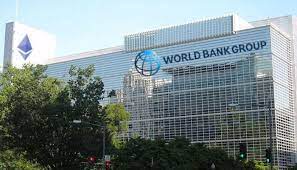The World Bank has approved $600 million in financing to improve the quality of public services in Morocco.
Signed in Washington, the World Bank has announced the approval of financing for two programmes aimed at strengthening public sector performance and improving the inclusiveness and quality of public services in Morocco.
The first programme, with a budget of $350 million, supports the implementation of the reform of public establishments and enterprises (PEEs). According to a press release issued by the financial institution, the aim of this programme is to “improve the governance, restructuring, competitive neutrality and performance monitoring of public enterprises.”
An additional $250 million will be allocated to the Moroccan Public Sector Performance Programme (ENNAJAA).
This support will continue to support the Moroccan government’s efforts to improve performance and transparency, with a focus on modernising public administration through digitisation and public finance management reforms.
“The main aim of these two projects is to strengthen the performance of the public sector and improve the quality of services provided to Moroccan citizens, in line with Morocco’s new development model,” Jesko Hentschel, Country Director for the Maghreb and Malta at the World Bank explained.
The World Bank will support the Moroccan government from the early stages of PEA reform, focusing on results and building the technical and implementation capacity of the two implementing agencies: the Ministry of Economy and Finance, through its Directorate of Public Enterprises and Privatisation (DEPP), and the recently created National Agency for the Strategic Management of State Holdings and Performance Monitoring of Public Establishments and Enterprises (ANGSPE).
“The reform of public enterprises is a priority for Morocco, as emphasised by His Majesty King Mohammed VI at the last Council of Ministers on 1 June. With a view to national prosperity, the aim is to restructure the public portfolio, improve its performance and initiate reforms to offer the population accessible, high-quality services,”
added Jesko Hentschel.
The initial ENNAJAA programme has already achieved “significant” results after almost two years of implementation, with a notable increase of almost 7 percent in additional tax revenues thanks to improved compliance at national level. In addition, revenues collected by the ten largest municipalities have increased by 22 percent.
This additional funding for the ENNAJAA programme will also focus on improving the efficiency of public spending and revenue management, promoting greater budget transparency for citizens. It will facilitate
the adoption of climate-responsive budgeting, a first in Morocco, as well as gender-responsive budgeting for eight ministerial departments by 2028.
MN/ac/fss/as/APA


